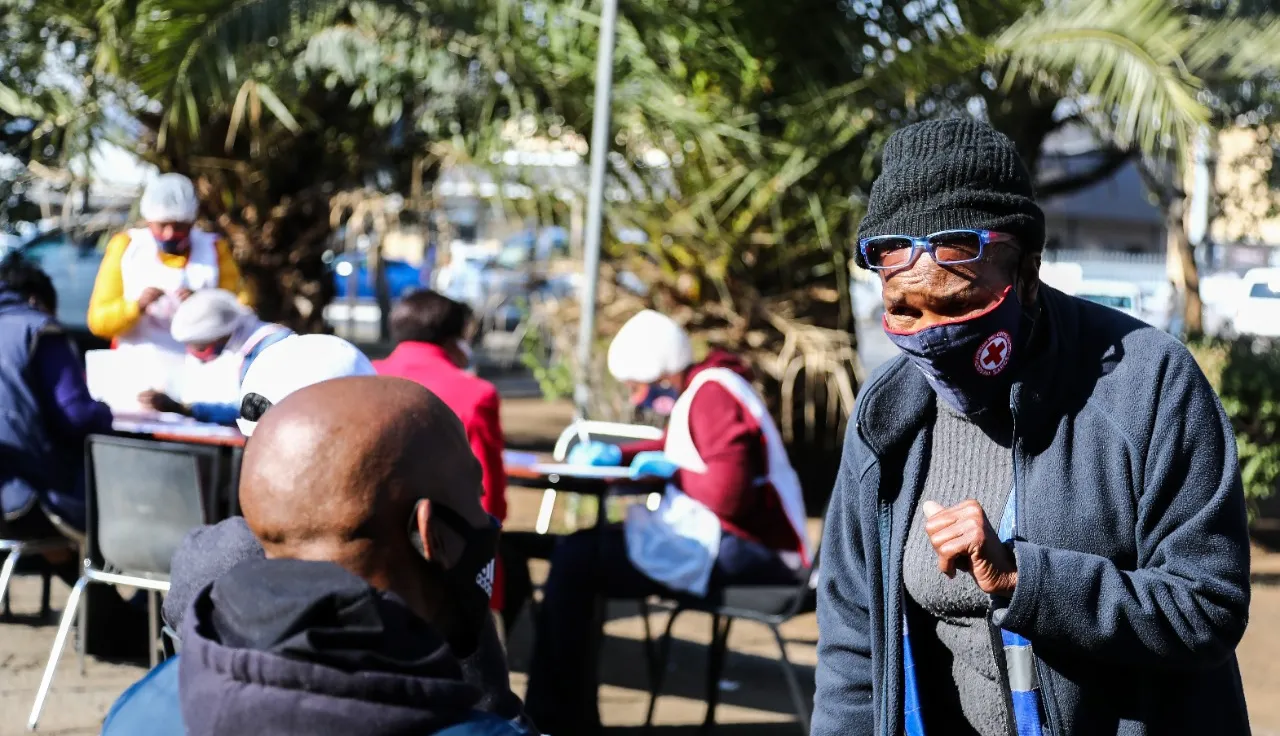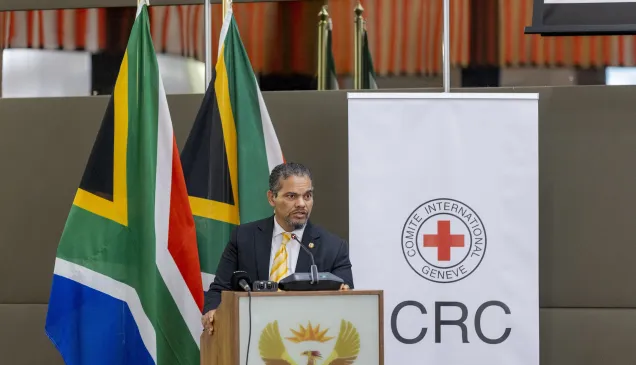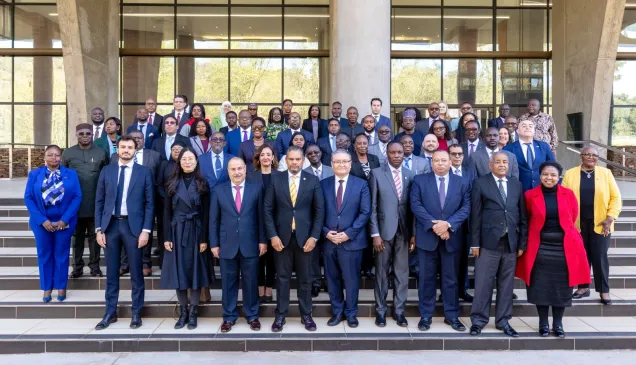In a new report covering seven countries – "The greatest need was to be listened to: The importance of mental health and psychosocial support during COVID-19" – the International Red Cross and Red Crescent Movement demonstrates how the pandemic is adding an extraordinary level of stress and suffering on communities around the world. The outbreak is worsening existing mental health conditions, triggering new ones, and making access to mental health services even more scarce. It calls for urgent and increased funding for mental health and psychosocial support within humanitarian responses.
"While COVID-19 cases in South Africa are on the decline, the invisible scars of the pandemic remain," said Mamadou Sow, the head of ICRC's regional delegation for southern Africa. "This survey shows the mental and emotional toll the COVID-19 health crisis and its many ripple effects, including financial hardship, has had on South Africans. Mental health care cannot be forgotten in South Africa's recovery and must be available to those who need it."
The report also highlights the urgent mental health needs of those who have been on the frontline of the pandemic, from medical staff, to volunteers, community workers, social workers, dead body handlers, community leaders and many others. Eighty-two percent of respondents to the ICRC survey in South Africa said that frontline health workers and frontline responders have more need for mental health support than the average person.
Nearly three out of four respondents in South Africa—71 percent—said that taking care of their mental health became more important to them during the pandemic. A near identical proportion—72 percent—said their physical health became more of a priority, an indication that many see mental health to be as important in physical health in getting through the COVID-19 crisis.
"Just like the Red Cross has managed to roll out First Aid worldwide, we now as the Red Cross Movement commit to rolling out Psychological First Aid globally," said the International Federation of Red Cross and Red Crescent Societies (IFRC) Southern Africa Head of Cluster Dr Michael Charles. "In South Africa in particular - the epicentre of COVID-19 in Africa, with the most stringent lockdown conditions on the continent - we see the mental toll this virus has taken on all. It has never been more urgent to pay attention to people's mental wellbeing. Without it, we have no life."
The Movement's recommendations for states, policy makers, mental health and psychosocial support advocates and practitioners include:
- Ensuring early and sustained access to mental health and psychosocial support services for people affected by the pandemic
- Integrating mental health and psychosocial support in all responses addressing the needs arising because of the pandemic
- Prioritising protection of the mental health and wellbeing of staff and volunteers responding to the humanitarian needs in the pandemic
ENDS
Notes to editors:
On the Red Cross and Red Crescent Movement: The International Red Cross and Red Crescent Movement is the world's largest humanitarian network, comprised of the International Committee of the Red Cross and Red Crescent (ICRC), the International Federation of Red Cross and Red Crescent Societies (IFRC) and 192 national Red Cross and Red Crescent Societies.
On the ICRC survey: A total of 3,500 people responded to the ICRC-commissioned survey from seven countries: Colombia, Lebanon, the Philippines, South Africa, Switzerland, Ukraine and the United Kingdom. The survey, which was carried out by Ipsos from September 18-22, queried 500 people per country from a nationally representative sample. Further information on the survey results is available upon request.
On the Red Cross' mental health work in Africa:
- The South African Red Cross Society (SARCS) is offering psychosocial support services in all nine provinces to its staff and volunteers, many of whom have been on the frontlines of COVID-19. The services have so far helped more than 6,100 Red Cross volunteers and staff in South Africa.
- The ICRC has mental health and psychosocial programmes currently running in the Central African Republic, Burundi, South Sudan, the Democratic Republic of Congo, Mali, Nigeria, and Senegal. Our teams provide mental health and psychosocial support in communities and health care facilities, including ICRC-run surgical wards and rehabilitation centres. We also support those with specific needs such as first responders and families of missing people.
For further information, please contact:
ICRC:
Khatija Nxedlana, Spokesperson, ICRC Southern Africa, knxedlana@icrc.org, +27 78 737 2209
Crystal Wells, Spokesperson, ICRC Africa, cwells@icrc.org, +24 716 897 265
South African Red Cross Society:
Sarieta Schultz, Communications Manager, Sarieta Schultz, sschultz@redcross.org.za, +27 83 266 1468
IFRC:
Sanja Göhre, IFRC Senior Communications Officer, Southern Africa, Pretoria, +27 82 777 4161, sanja.gohre@ifrc.org
Euloge Ishimwe, IFRC Head of Communications, Africa, Nairobi, +254 731 688 613, euloge.ishimwe@ifrc.org
or visit our website: www.icrc.org
To preview and download the latest ICRC video footage in broadcast quality, go to www.icrcvideonewsroom.org
To find out what the ICRC is doing to put an end to attacks on health workers and patients, go to icrc.org/eng/life-death
Follow the ICRC on facebook.com/icrc and twitter.com/icrc




